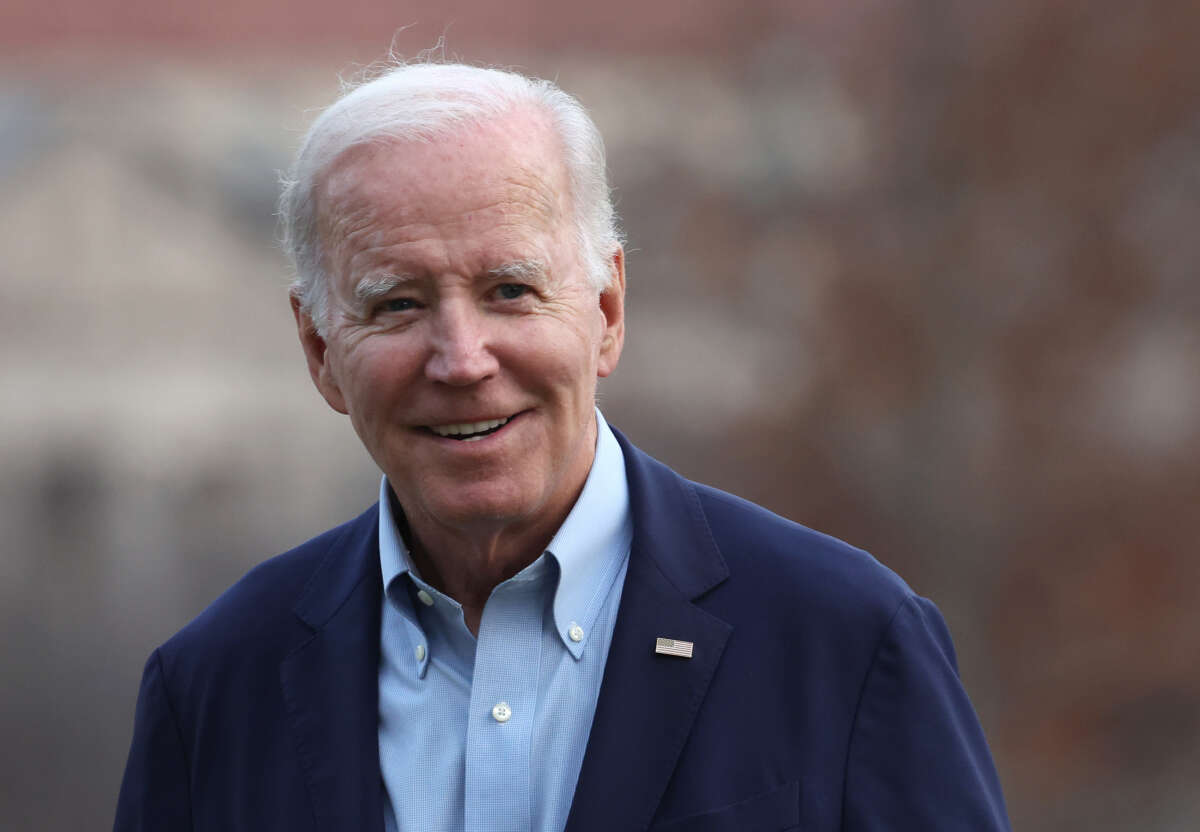Honest, paywall-free news is rare. Please support our boldly independent journalism with a donation of any size.
On Wednesday, President Joe Biden spoke to reporters about Republicans’ failure to select a speaker of the House of Representatives, the congressional chamber in which they hold a majority.
Six votes have been held so far — three on each of the two days that the House has convened since the start of the 118th Congress. Each of those six votes failed to produce a winner for the speakership. House GOP leader Rep. Kevin McCarthy (California), who was viewed as the frontrunner for the position, needs to reach 218 votes in the chamber, but due to the party’s very slim majority in the House, can only afford to lose four Republican votes. A far right coalition of around 20 Republicans has voted against him in each vote so far.
After its sixth vote yesterday afternoon, the House voted to adjourn until 8 pm Eastern Time. At that hour, the House voted to adjourn again until Thursday at noon, though the situation hadn’t changed.
This is the first time since 1923 that a vote for speaker of the House went beyond the first ballot. Biden weighed in on the legislative branch’s dilemma on his way to an event in Kentucky to promote the infrastructure package.
“With regards to the fight over the speaker … that’s not my problem,” he said to reporters. “I just think it’s a little embarrassing that it’s taking so long.”
Still, Biden noted that the “rest of the world is looking” at the situation to see if House Republicans can “get [their] act together.”
Earlier this week, White House Press Secretary Karine Jean-Pierre told reporters that Biden would “not insert himself in that process,” referring to votes on the speakership.
Notably, Biden can’t do much with the House whether or not there is a speaker to run it — as long as Republicans are in charge, it’s unlikely the chamber will pass bills that would advance his agenda. Instead, Biden will likely focus on the Senate and the nomination of federal judges moving forward.
It will be easier for Senate Democrats to approve judges for Biden this term, as they gained an additional seat in last year’s midterm races. Even if Sen. Kyrsten Sinema, who switched her party affiliation from Democrat to independent last month, chooses not to caucus with Democrats, the party would still have a 50-49 advantage over Republicans, relieving them of the need to broker a power-sharing arrangement, as they had in previous years.
Senate Democratic leaders have already expressed their readiness to approve more judges for Biden. Sen. Dick Durbin (D-Illinois), who chairs the Senate Judiciary Committee, said last month that Democrats will “hit the ground running” when it comes to confirming judicial nominees. Senate Majority Leader Chuck Schumer (D-New York) has echoed those sentiments, stating that “judges will remain a top priority in the Congress to come.”
Press freedom is under attack
As Trump cracks down on political speech, independent media is increasingly necessary.
Truthout produces reporting you won’t see in the mainstream: journalism from the frontlines of global conflict, interviews with grassroots movement leaders, high-quality legal analysis and more.
Our work is possible thanks to reader support. Help Truthout catalyze change and social justice — make a tax-deductible monthly or one-time donation today.
